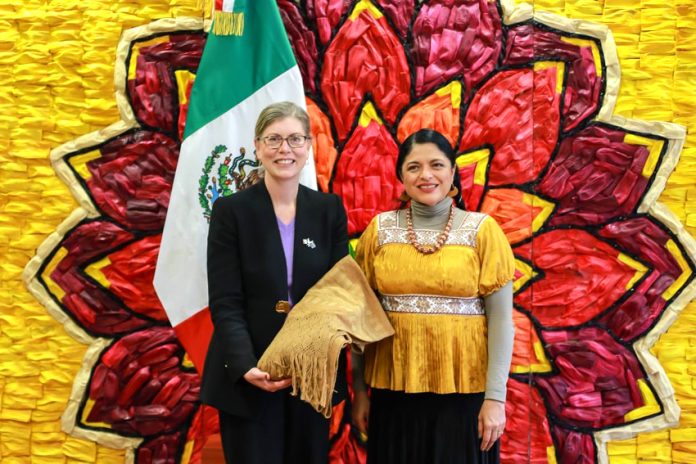Twelve years after coming to Mexico to work as deputy head of mission at the Australian Embassy in Mexico City, Rachel Moseley returned to the capital last year, this time to take up the position of ambassador.
There have been significant developments in the relationship between Australia and Mexico since her first posting to Mexico, but, as Moseley recently told Mexico News Daily, there is an opportunity for the two countries to collaborate even more closely and enhance ties in a range of areas.
With the publication of this interview with the ambassador, Mexico News Daily continues its “Australia in Focus” week, during which we are publishing a series of articles on a range of topics related to the Australia-Mexico relationship and the “Australian presence” in Mexico.
This interview has been lightly edited for length and clarity.
PETER DAVIES: Hello Ambassador, thank you for speaking to Mexico News Daily. Can you tell us a little bit about yourself and your role in Mexico?
AMBASSADOR RACHEL MOSELEY: First of all, thank you for this opportunity. My name is Rachel Moseley and I’m here to represent Australia not just in Mexico, but also in Central America and the Caribbean (Costa Rica, Cuba, Dominican Republic, El Salvador, Guatemala, Honduras, Nicaragua and Panama). I have a Master of International Relations from the University of New South Wales and a Bachelor of European Studies from the Australian National University and the University of Bologna in Italy. Aside from English, I speak Spanish and Italian.
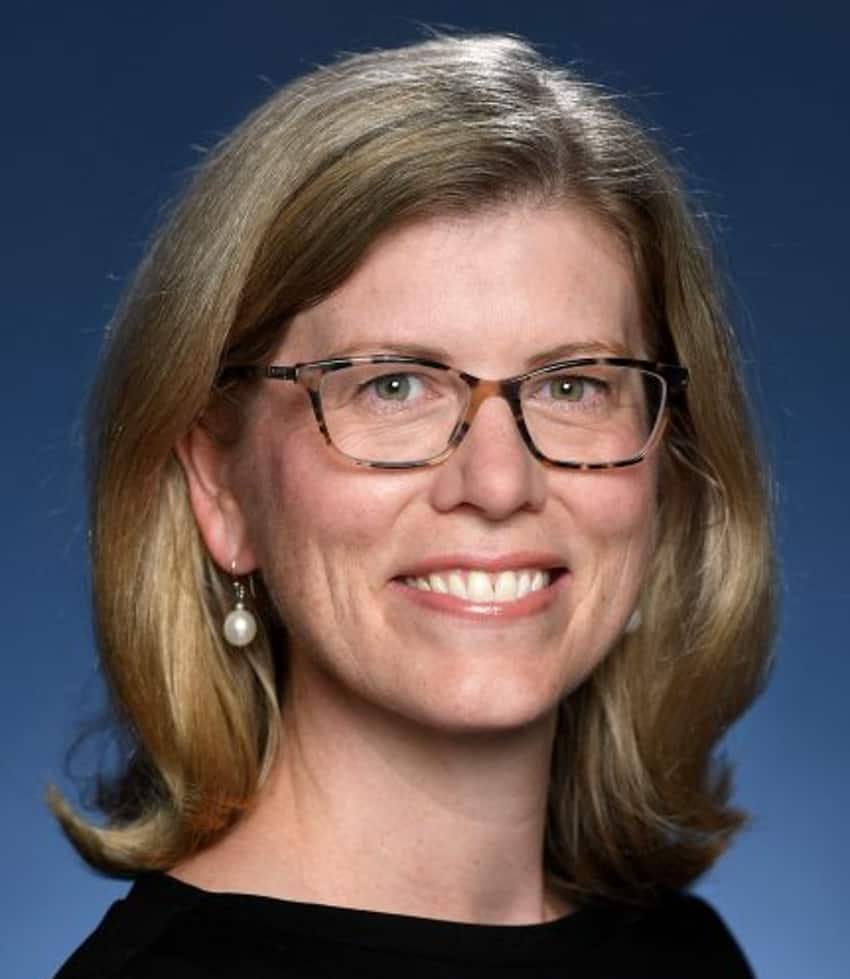
Before coming here, I served as head of the Ukraine Taskforce and assistant secretary, Latin America and Eastern Europe Branch at Australia’s Department of Foreign Affairs and Trade (DFAT). I have worked with DFAT since 2002, both in postings overseas and in Canberra.
Overseas, I have served as deputy head of mission in Papua New Guinea and Mexico City; as well as second secretary in our mission to the UN in Geneva. In Canberra, I have had a number of positions including assistant secretary, People Operations Branch; acting assistant secretary, Security Policy Branch; and adviser to the foreign minister.
I am thrilled and honored to be back in Mexico, now as ambassador.
Mexico has a special place in my heart, I spent my honeymoon in Quintana Roo and my husband and I welcomed our first child here during my first posting to Mexico.
Work-wise, my three main priorities as ambassador are: first, to work on generating new opportunities in trade and investment, while also supporting Australian companies already operating in Mexico. Second, increase cultural and education cooperation, especially when it comes to Indigenous peoples. And finally, to advance cooperation on multilateral issues such as gender, human rights, climate change, non-proliferation and disarmament.
PD: How has the Australia-Mexico relationship changed in the 12 years since you first started working in Mexico City as deputy head of mission?
RM: Australia, Mexico, and indeed the whole world, are different compared to 12 years ago. In Australia, I think we are seeing more of a recognition of the importance of Latin America. Conversely, over the past decade Mexico has increased its focus on the Indo-Pacific.
In terms of the Australia–Mexico relationship, perhaps the largest change in the relationship was the entry into force of the Comprehensive and Progressive Agreement for the Trans–Pacific Partnership (CPTPP) in 2018.
This has enabled businesses to interact more with each other, which also creates people-to-people links as well. I hope to see a lot more interaction between our countries as more benefits are realized through the CPTPP with each passing year.
PD: What are Australia’s priorities in the bilateral relationship with Mexico today and moving forward?
RM: First, growing bilateral trade and investment. Mexico is currently Australia’s largest trading partner in Latin America, with two-way trade in goods and services worth more than five billion Australian dollars [about US $3.3 billion].
The CPTPP is the first free trade agreement between Australia and Mexico. Some of the tariff reductions under CPTPP are still coming into force, providing new opportunities to expand trade.
For example, under the CPTPP, the tariff rate on Australian barley exports to Mexico was cut from 43 per cent to zero. Our first shipment of Australian barley left for Mexico in January 2021, and the grain is now our largest export to Mexico. Malting barley is a key input for Mexico’s beer industry, the fourth largest producer in the world. Much of this beer is, in turn, exported internationally.
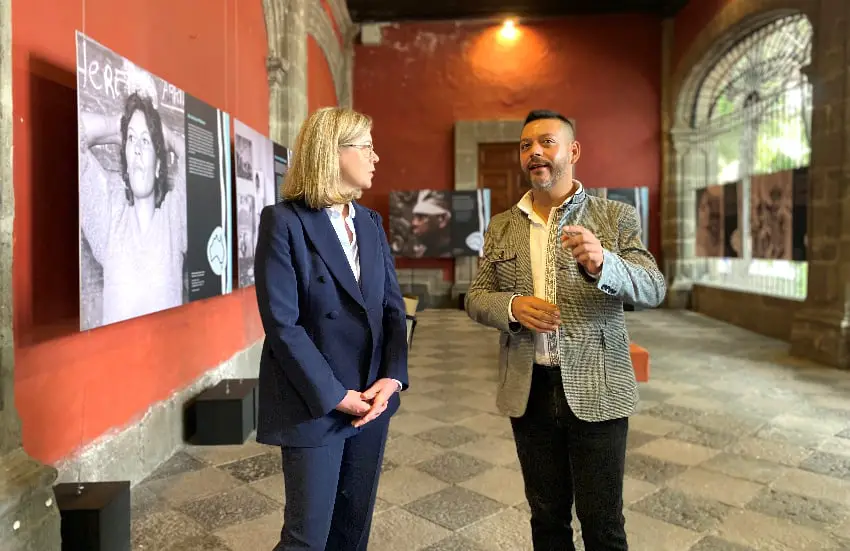
Australian investment in Mexico is also growing rapidly, led by companies like [oil and gas company] Woodside, [financial services firm] Macquarie and [infrastructure company] Aleatica. Their operations are helping to create jobs in Mexico, and they bring unique capabilities and best practices in terms of social and environmental responsibility.
As I mentioned before, we want to continue our cooperation with Mexico in the multilateral space. Australia shares many values in common with Mexico, and we engage with the world based on these. For example, Australia worked closely with Mexico in the UN Human Rights Council last year to establish a separate and distinct status for Indigenous Peoples voices to be heard in dialogues on the rights of Indigenous Peoples, a historical first.
Finally, we are working to strengthen people-to-people exchanges, including with our indigenous communities. We recognize that First Nations knowledge and expertise can be leveraged to help solve global challenges, including in areas such as climate change. Australia and Mexico both have rich Indigenous histories dating back thousands of years, and there is much we can gain from sharing experiences and best practices. For example, there has been interest here in Mexico in the use of traditional Indigenous knowledge in land management and fire hazard reduction in Australia.
PD: Australia and Mexico collaborate in groups such as APEC, the G20 and MIKTA. Do you see any scope for enhanced cooperation on a multilateral or bilateral level?
RM: This year, Latin America will be prominent on the international stage. Both APEC and G20 will be hosted in the region, in Peru and Brazil, respectively. And Mexico will chair MIKTA, a grouping of five middle powers — Mexico, Indonesia, Republic of Korea, Türkiye, and Australia — united by a commitment to work together to build consensus and seek collective solutions to global challenges. MIKTA has just completed its 10th anniversary and remains just as relevant today. We stand ready to support Mexico’s chair year, and work together to bridge divides in the multilateral system, protect public goods and strengthen global governance.
As mentioned, Australia and Mexico cooperate closely on multilateral and human rights issues, but there is scope to do more. We both have highly experienced, well respected, women foreign ministers who are driving this engagement.
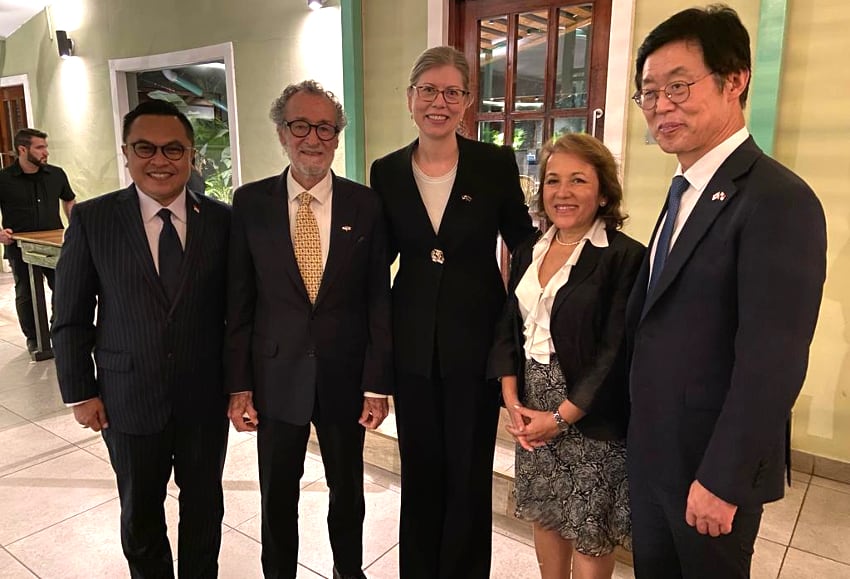
Mexico was the first Latin American country to implement an explicitly feminist foreign policy. In a similar vein, Australia has adopted a First Nations foreign policy — one that projects our modern diversity and the rich heritage of First Nations People. This work is about ensuring First Nations communities share in the benefits of our international engagement, including trade and investment opportunities. We want to work with Mexico to share more of each other’s experience.
PD: The Australian Embassy has recently funded a range of projects in Mexico including ones aimed at preventing violence in public secondary schools and another that offered training to young female sports journalists. Can you tell us a little bit about Australia’s Direct Aid Program?
RM: The Direct Aid Program (DAP) is part of the Australian Government’s overall social development assistance program. DAP was created to provide funding assistance directly to communities for sustainable development activities through flexible small grants. Through helping people in need, we can show Australia is a supportive and trusted partner in addressing aid challenges in partner countries.
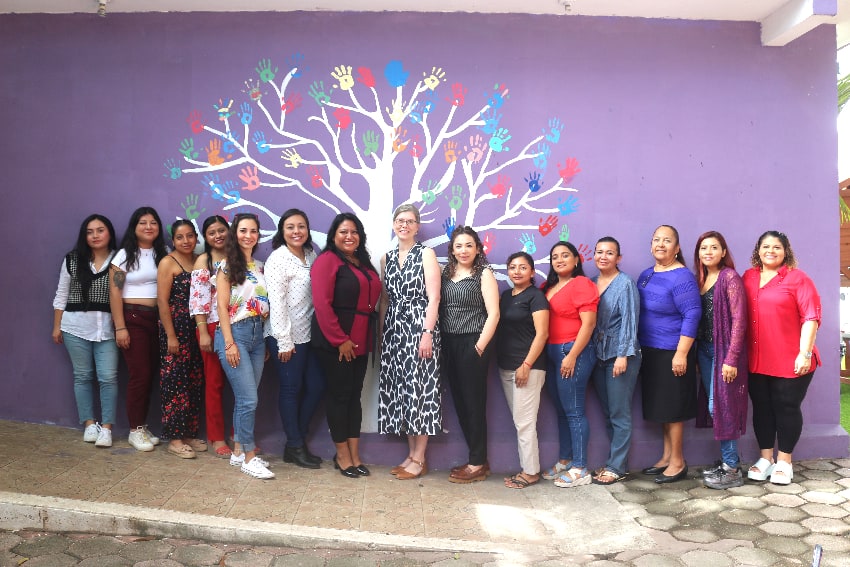
DAP projects engage a wide range of partners including community groups, non-government organizations, and educational institutions.
Although DAP projects cover a range of sectors such as education, health, water and sanitation, environmental protection, women’s empowerment, and gender equality, supporting people with disabilities, economic livelihoods, food security and human rights, each diplomatic Post around the world can define its own priority topics according to its interests in the countries they work in. This year, we focused the program on four main topics: gender equality, indigenous peoples, environment and sustainability, and human rights.
We always try to fund at least one project for each of our nine countries and in the last few years we have funded up to 16 projects, each with $20,000 Australian dollars on average.
PD: Knowledge of Mexico — and especially Mexican food — is increasing among Australian people. In your experience, could the same thing be said about Australia among Mexicans?
And what is the Embassy doing to increase awareness of Australia and promote the country as a destination for tourism, investment and education?
RM: Yes, absolutely! Through our social media accounts, we share a lot about life in Australia and have highlighted the stories and experiences of our alumni. In our interactions with the public, we have noticed that there has been an increase in knowledge of Australian culture, especially food and drinks.
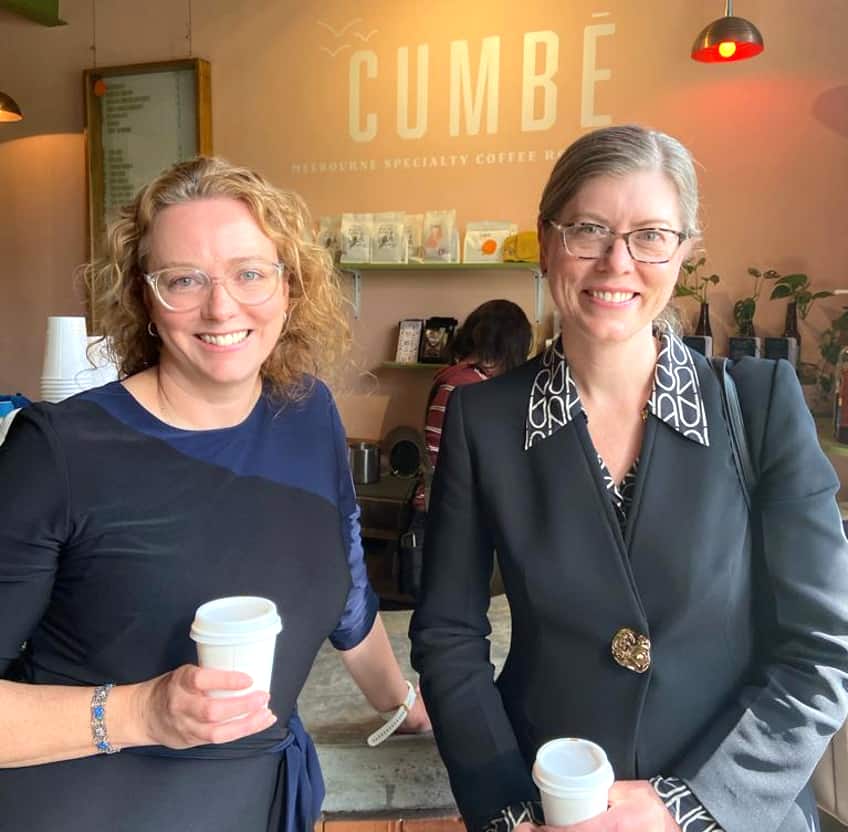
For example, we love a high-quality cup of coffee and that is something [Mexico City resident] Rafa discovered while studying in Australia. He has now opened his own Australian-style coffee shop in Mexico City called Cumbé Coffee Roasters.
On occasions we have partnered with Cumbé and other spaces to give away classic Australian treats like sausage rolls, ANZAC biscuits, lamingtons, and pavlovas. We are also thrilled that our famous Tim Tam biscuits are now available in Mexico and every Mexican who tries them ends up loving them. Finally, we cannot forget about our wine. This year we welcomed Trifon Estate Wines to Mexico, and we could not be more excited to give everyone a taste of the fantastic wines we produce in Australia.
In terms of education, the Embassy has strengthened its relationships with organizations that grant scholarships or educational loans and state governments. We have been present at major study fairs such as BMI Expo Posgrados, where Australia was the country of honor in the 2022 and 2023 autumn editions.
We are working to link Mexican universities and schools with Australian institutions to establish cooperation and mobility links. In fact, Australia was delighted to be the guest of honor at the 2023 Mexican International Education Association national conference.
Australia has also supported Mexican women who are early career researchers through the APEC Australia Women in Research Fellowships. We have had five Mexican recipients since the program began last year, supporting professional development through international experiences, strengthening our university partnerships, and advancing research that address shared challenges between Mexico and Australia.
Mexico and Australia are closer than they appear, and we want to share that with everyone!
For updates on Australian government initiatives in Mexico, follow the Australian Embassy on Facebook and Ambassador Moseley on X.
This article is the second in Mexico News Daily’s “Australia in Focus” series. Read about the history of relations between Australia and Mexico here.
